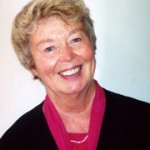How often do you get frustrated or upset as a result of how others have delivered their message or treated you? What about the times you’ve tried to communicate your point, but just don’t seem to get through to your audience? What’s the price you’ve paid for these disconnects in communications? How has it affected relationships and collaboration? What would be the benefit if it improved?
Anyone who has ever worked with others knows people approach situations differently. At times, these differences can create fresh perspectives, balance, and innovative solutions. Understanding personal style, and acting on that knowledge, can lead to improved performance, productivity, and morale.
Unfortunately, the converse can also be true. Often the differences in style lead to misunderstanding, mistrust, and frustration. This can then lead to lowered productivity and undesirable outcomes. Consider the following short (true) example:
I was requested by a client to coach an employee who was “having issues” with a team mate. As I sat down with the employee, something immediately became obvious… he was a matter of fact, direct, results driven guy. He acted quickly in an effort to hit his goals. His team mate, on the other hand, was relatively quiet, less direct, and seemed to take the words and actions very personally.
May not seem a big issue, but in this instance, they were required to collaborate on business opportunities. The bottom line… misinterpretations of styles and lack of insight into how to work with one another drove the two apart and cost the organization a deal worth more than $1M.
While this scenario might be extreme, conflicts, difficulty communicating with others, and less than optimal working relationships, are an everyday occurrence.
Your ability to understand your own characteristics/style, as well as those around you, can help you:
1. Identify personal tendencies
2. Adapt for improved communications and interpersonal relationships
3. Effectively meet the needs of yourself and others
4. Understand and respond to information and interactions more appropriately
5. Get things accomplished!
For many of us, it’s likely that you’ve been using information about social style on an intuitive level for many years. Formalizing that understanding is a next step to taking actions.
_________________________________________________________________________
Author: Sue Cooney
Check out Sue’s upcoming Webinar – “Foundations of Style: Behavior and the Bottom Line“ – premiering November 19, 2009 at 2PM (EST)

 Location: Online Workshop
Location: Online Workshop Location: Online Workshop
Location: Online Workshop
 Everyone who works for a living-no matter what the organization or industry-education, law, banking, tech corporations, this workshop is ideal for everyone including managers and executives.
Everyone who works for a living-no matter what the organization or industry-education, law, banking, tech corporations, this workshop is ideal for everyone including managers and executives.
